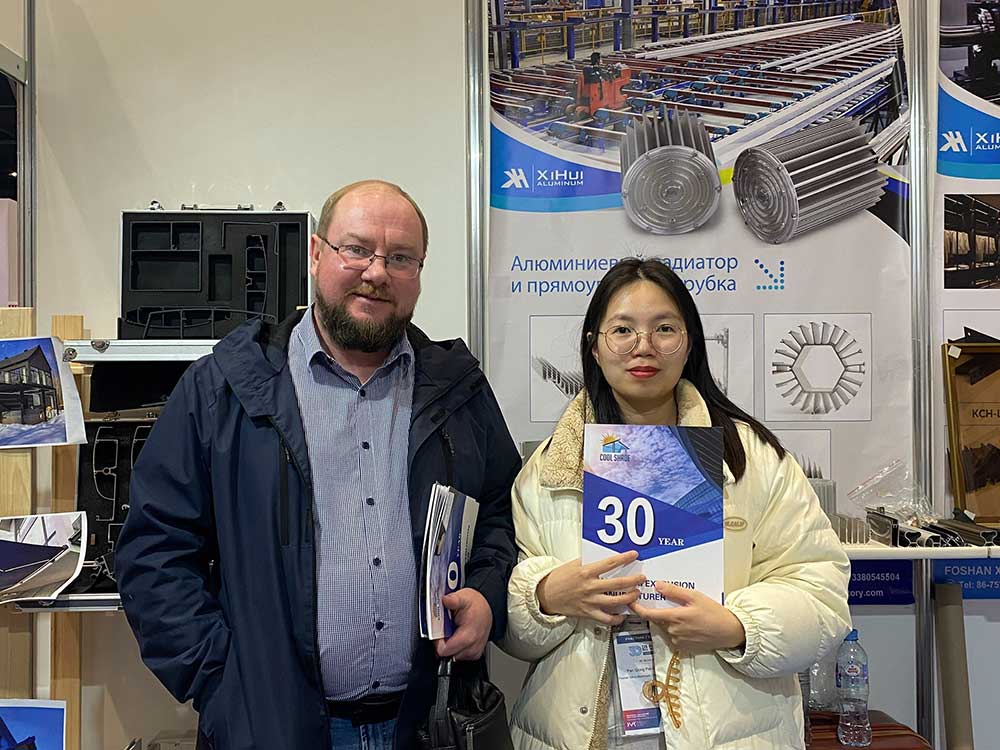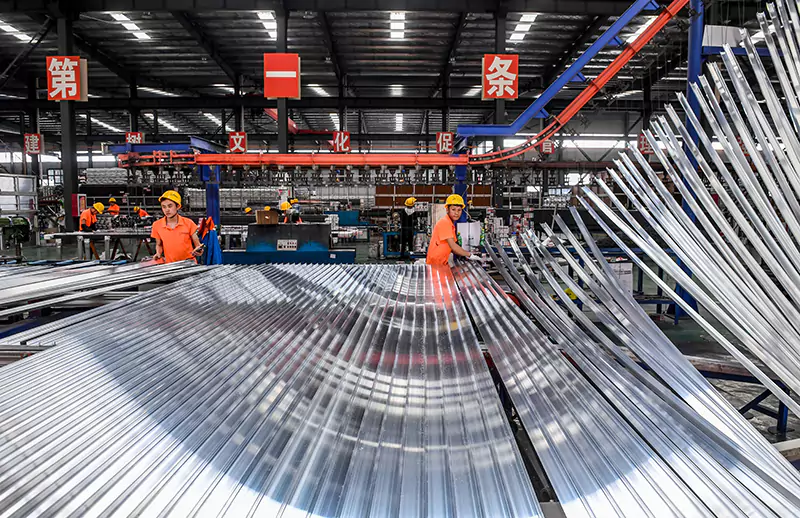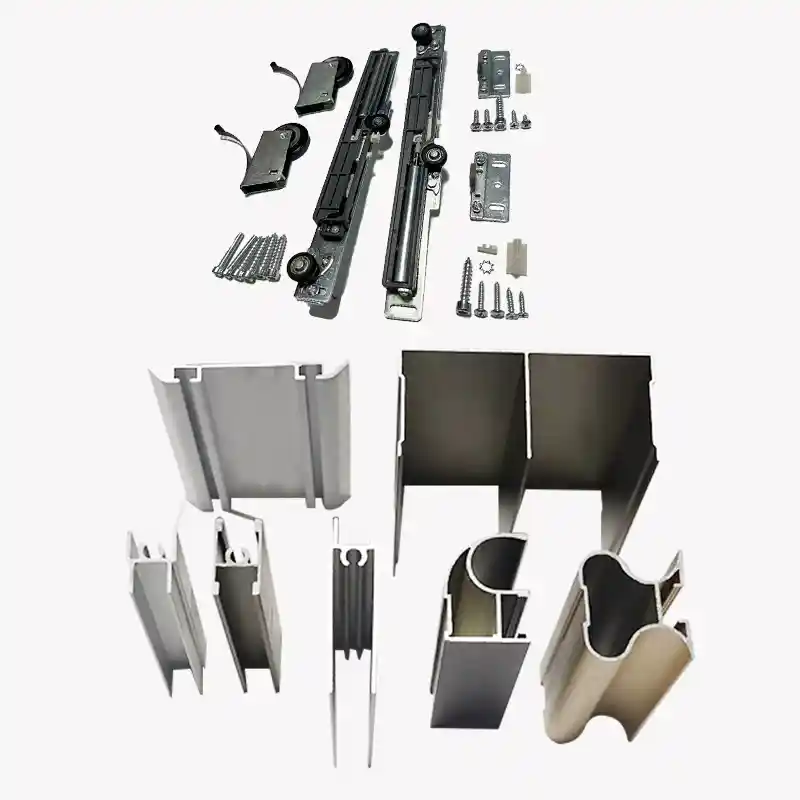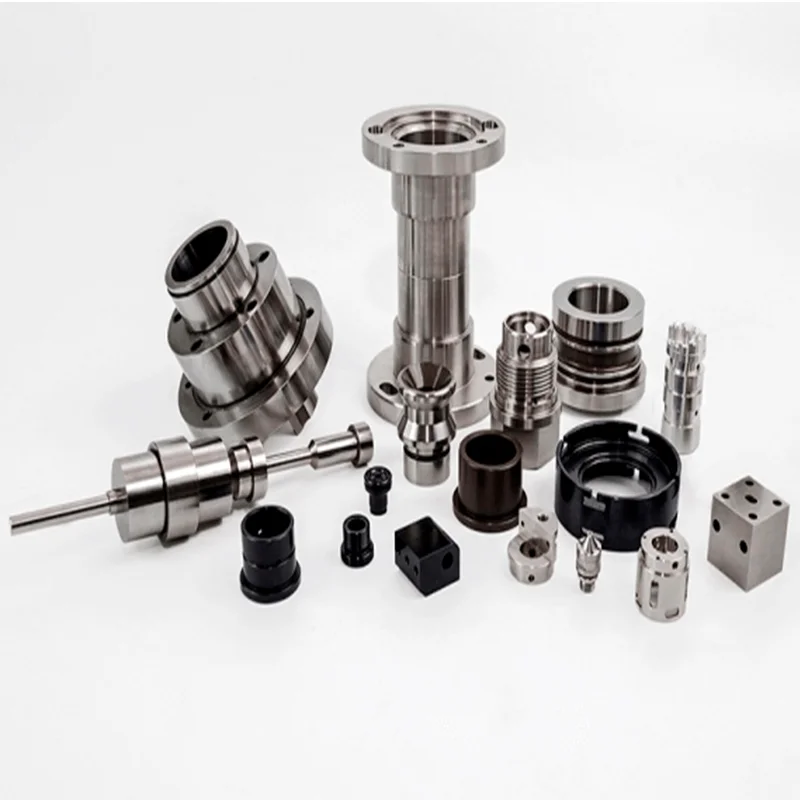
In the fast-changing world of medical automation, reliability and accuracy are imperative. Think of all the way from robotic surgery tools to ventilators—every single piece needs to be top-notch when it comes to performance and accuracy. One such piece is custom aluminum shafts and spindles that have a very significant role to play. They help ensure that medical devices run smoothly. In addition, thanks to advanced CNC turning technology, manufacturers are able to create these components with amazing accuracy and reliability. This allows them to meet the strict demands of the medical field.
The Importance of Precision in Medical Automation Components
Medical devices are often used when lives are on the line. In these settings, even tiny differences in a part’s size can cause serious problems. It could lead to a machine not working right or even put a patient’s safety at risk. That’s why getting the machining exactly right is a must.
Role of CNC Turning in Medical Device Manufacturing
So, what is CNC turning? It’s a way of making things where you start with a block of material and cut parts away. It uses lathes guided by computers to make very precise metal parts. This method is very common for making medical devices. It’s perfect for creating round parts like shafts and spindles. These pieces often have complex shapes and need very exact measurements. Luckily, CNC turning can always achieve this.
Requirements for Accuracy and Reliability in Medical Applications
In medical uses, it’s not enough for a part to just be the right size. The material also needs to be strong and have a good surface. Plus, it has to be biocompatible, meaning it’s safe for the human body. These parts must survive tough cleaning processes. They also have to resist breaking down from bodily fluids or cleaners. And finally, they need to fit perfectly with all the other mechanical or electronic systems.
CNC Turning Technology and Its Capabilities
To meet these tough rules, modern CNC turning has a whole range of features. These features are perfect for highly precise fields like healthcare.
Overview of CNC Turning Processes
CNC turning works by spinning a piece of material while a cutting tool carves away at it to make specific shapes. This process is great for making symmetrical items. For example, things like rods, pins, spindles, and tubes are all commonly used in automated medical equipment and can be made this way.
Tolerances and Surface Finishes Achievable with CNC Turning
Modern CNC machines are amazing. They can work with incredibly small margins of error—often within +/-0.005mm to +/-0.002mm. This level of detail is critical. Why? Because these parts have to fit perfectly inside complicated machines. XiHui Aluminium offers CNC machining services that can hold these tight tolerances (+/-0.005 ~ +/-0.002mm). This makes sure every single part is made to the exact plan.
Benefits of Using CNC Turning for Aluminum Components
Aluminum is a great choice for CNC turning because it’s easy to work with. You can cut it faster, and the tools don’t wear out as quickly as they do with harder metals like stainless steel or titanium. So what does this mean? It means shorter production times and lower costs. And the best part is, you don’t lose any quality. This is a big deal when you need to make a lot of medical devices.
Advantages of Aluminum for Medical Shafts and Spindles
Aluminum has become a go-to material in medical automation. This is because it has a special mix of physical qualities.
Material Properties Favorable to Medical Use
Corrosion Resistance and Lightweight Structure
First of all, let’s talk about its resistance to rust and its light build. Aluminum parts are naturally light, look good, and are simple to put together. After the surface is anodized, it gets really tough against rust and general wear. This mix of features is perfect for medical gear that needs to be moved around. Making it lighter helps people use it more easily, but it doesn’t make it any less strong or long-lasting.
Biocompatibility and Thermal Conductivity
Aluminum alloys that are used in medicine are usually safe for the body, especially when they have a proper coating or are anodized. Besides that, aluminum is great at getting rid of heat. This is a really important feature for parts in motors that heat up while they’re working.
Common Aluminum Alloys Used in Medical Machining
Alloys like A6061, A6063, and A7075 are used a lot. They offer a good mix of strength, rust resistance, and ease of machining. A6061 is known for being structurally strong. On the other hand, A6063 gives a better surface look. A7075 is incredibly hard, which is just right for high-stress uses such as in surgical robots.
Design Considerations for Custom Shafts and Spindles
When you’re designing special aluminum shafts or spindles for medical equipment, there are a few important design points to think about.
Geometric Complexity and Dimensional Constraints
CNC turning allows for making really complex shapes. These can include different diameters on the same piece, grooves, threads, and even hollow insides. All of these features are essential for custom spindle designs. Thus, they must fit into the small, tight spaces inside automated systems.
Integration with Other Automated Systems in Medical Devices
Often, parts have to connect with things like sensors, motors, or bearings inside a bigger machine. For this reason, it’s crucial that all the connecting parts are dimensionally compatible. This is a demand that precise CNC turning can easily handle.
Surface Treatments to Enhance Performance
Treating the surface can make turned aluminum parts work better and last longer, which is very important in sterile places.
Anodizing for Durability and Cleanliness
The process of anodizing creates a surface that is resistant to both rust and wear. This makes it a great option for boosting durability while also keeping surfaces clean. This is suitable for sterile places like operating rooms or labs.
Powder Coating, Sand Blasting, and Polishing Options
There are many custom colors and finishes to choose from. These include anodizing, powder coating, and even effects that look like wood grain. Powder coating can add a nice look, while sand blasting gives a consistent non-shiny finish. Polishing makes the surface more reflective. Each finish is chosen for a specific need, whether it’s for function or just for looks.
Quality Assurance in CNC Machined Medical Parts
Just being precise isn’t the whole story. You also need consistent quality checks to make sure every part meets the rules and expectations.
Precision Standards in the Industry (e.g., ISO 9001:2015)
Companies that make parts for the medical field must follow global standards. For instance, a key one is ISO 9001:2015, which sets rules for quality management systems. Following this standard guarantees that everything can be traced, from the raw metal all the way to the final check.
Inspection Methods for Dimensional Accuracy and Finish Quality
Checking dimensions with CMMs (Coordinate Measuring Machines), using testers for surface roughness, and doing visual checks under a microscope all help. These steps confirm that the turned aluminum shafts are exactly what the client ordered before they are sent out.
Applications of Custom Turned Aluminum Parts in Medical Devices
The usefulness of custom-made aluminum parts is seen in many different areas of healthcare tech.
Use in Ventilation Systems, Surgical Equipment, Imaging Machines
Shafts are key parts in the motors of ventilators. Spindles are needed to guide the movement in robotic surgery arms. And imaging machines depend on perfectly aligned spinning parts. All of these benefit from high-precision aluminum made through CNC turning services.

Contribution to Efficiency, Safety, and Miniaturization
Aluminum is both light and strong. This reduces inertia, which improves how much energy is used. It also lets engineers make complicated machines smaller without giving up any mechanical strength or safety standards that official agencies require around the world.
XiHui Aluminium: Your Partner in Custom CNC Machined Aluminum Components
When you’re making crucial parts for healthcare automation, picking the right manufacturing partner is very important.
Company Background and Expertise Since 1993
With a long history of making and selling products that goes back to 1993, our factory has created tens of thousands of mold sets. These cover a huge variety of design styles. This deep experience means XiHui Aluminium brings unmatched knowledge to every single project.
Product Range Including Tubes, Profiles, T-Slots, Cabinet Frames
We have industrial aluminum profiles available. We also offer structural T-slot profiles that are used a lot in industrial automation, including in healthcare for things like isolation cabinets or stands for diagnostic tools.
Services Offered: CNC Turning, Milling, Laser Cutting & More
XiHui offers a full range of processing services. These include CNC turning, milling for flat surfaces or slots, and laser cutting for detailed patterns. All this work is done under very strict quality control rules that are right for sensitive fields like medicine.
Commitment to Quality: Tight Tolerances (+/-0.005 ~ +/-0.002mm), Multiple Surface Finishes
XiHui Aluminium delivers on tight tolerances (+/-0.005 ~ +/-0.002mm) and offers many surface finishes. This ensures your custom shaft or spindle will fit perfectly into any device. It will also meet visual expectations if the parts need to be seen from the outside.

Contact Information for Inquiries
For more information on how XiHui Aluminium can support your next medical automation project with expert CNC turning services tailored specifically toward lightweight yet durable aluminum solutions—contact their team directly through official channels today!
FAQs:
Q1: What makes CNC turning ideal for producing medical device components?
A: CNC turning gives you incredible precision (tolerances up to +/- 0.002mm) and consistency over many batches. It’s also great for the complex shapes you often find in shafts and spindles. All of these qualities are vital for the makers of today’s automated healthcare machines.
Q2: Why is aluminum preferred over stainless steel or titanium for many medical components?
A: Aluminum offers a fantastic mix of benefits. It’s lighter, which is important for portable machines. It resists rust well, especially when anodized. Plus, it’s good at managing heat for electronics. At the same time, it’s easier and cheaper to machine compared to tougher metals like titanium or stainless steel.
Q3: Can XiHui Aluminium handle small-batch custom orders?
A: Yes! For items we have in stock, which come in anodized silver and black at a standard 3-meter length (and can be cut to size), there is no minimum order. They are happy to do small production runs with fast turnaround times. This is perfect if you are testing new designs or have a special production need without spending a lot of money upfront.





